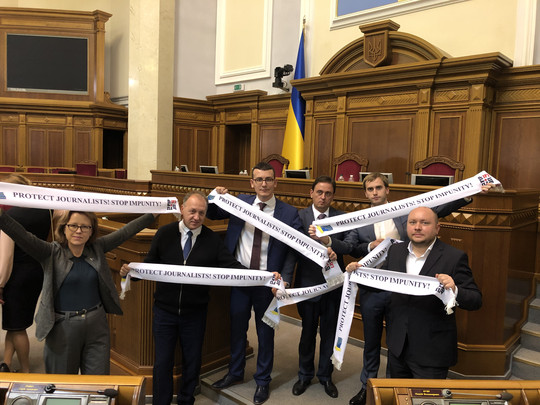The hearing, entitled “The Safety for journalists in Ukraine: the State of Play, Problems and Solutions,” was the first parliamentary debate about journalists’ safety and press freedom held in Ukraine in the last 10 years.
The Minister of Culture, Youth and Sports Volodymyr Borodiansky, the head of the Parliamentary Committee on Freedom of Speech Nestor Shufrych, the President of the NUJU, Sergiy Tomilenko, the head of the UN Human Rights Monitoring Mission in Ukraine, Matilda Bogner, the project director of the Freedom House NGO in Ukraine Matthew Schaaf as well as a number of MPs, media experts, media lawyers and journalists, participated in the hearing.
Participants made a series of recommendations, including publishing regular reports of law enforcement agencies, appointing officials responsible for investigating crimes against journalists in every law enforcement agency and improving the effectiveness of investigations into crimes against journalists, among others.
The IFJ chose Ukraine as one of the five target countries in its End Impunity 2019 campaign due to the difficulties Ukrainian journalists face every day in their reporting. In Ukraine, 16 journalists have been killed since 1995 but only 3 of these crimes were resolved and workers had been the target of attacks, threats, pressure to disclose their sources and constant surveillance during the last years.
President of the NUJU Sergiy Tomilenko said: “A Ukrainian journalist knows that, faced with threat or attack nobody is going to protect him or her. We need to solve this situation urgently. A free exercise of journalism is not possible when journalists work in unsafe conditions.”

